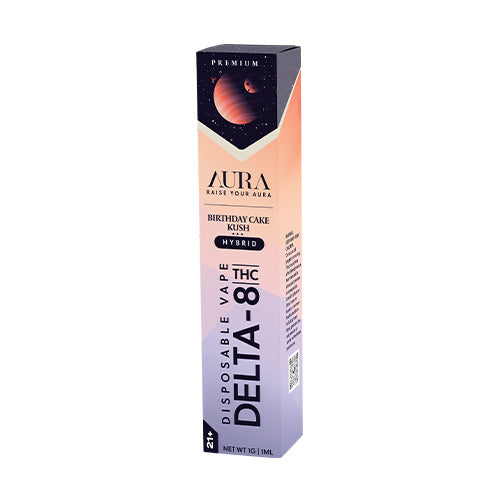The Science Behind Cannabis and Sleep: How It Works
As interest in the therapeutic properties of cannabis continues to grow, one area that has garnered significant attention is its potential impact on sleep. The relationship between cannabis and sleep is a complex interplay of compounds, receptors, and neurochemicals. In this short blog post, let's delve into the science behind how cannabis may influence our sleep patterns.
Endocannabinoid System (ECS):
At the heart of this interaction is the endocannabinoid system (ECS), a complex cell-signaling system found in the human body. The ECS plays a crucial role in regulating various physiological processes, including sleep. It consists of receptors, endocannabinoids (compounds produced by the body), and enzymes.
CB1 and CB2 Receptors:
Two primary types of receptors within the ECS, CB1, and CB2, are integral to understanding how cannabis affects sleep. CB1 receptors are primarily located in the central nervous system, while CB2 receptors are more prevalent in the peripheral tissues and immune system.
THC and Sleep:
Tetrahydrocannabinol (THC), one of the main cannabinoids in cannabis, binds with CB1 receptors, leading to a cascade of effects. THC has been shown to have sedative properties, potentially reducing the time it takes to fall asleep and increasing overall sleep duration. However, it's worth noting that the relationship between THC and sleep is complex and varies among individuals.
CBD and Sleep:
Cannabidiol (CBD), another prominent cannabinoid, interacts with the ECS differently. While it doesn't directly bind to CB1 receptors, it may modulate their function indirectly. CBD is often associated with relaxation and anti-anxiety effects, making it a potential aid for those with stress-related sleep disturbances.
Sleep Architecture:
Cannabis may influence sleep architecture and the cyclic pattern of sleep stages. Research suggests that it could impact REM (rapid eye movement) sleep, with some individuals experiencing reduced REM cycles, which is a phase associated with vivid dreaming.
Individual Variability:
Importantly, the effects of cannabis on sleep are highly individualized. Factors such as dosage, timing, and an individual's tolerance can significantly influence the outcomes. What works for one person may not have the same effects for another.
The science behind cannabis and sleep involves a nuanced interaction between cannabinoids and the body's endocannabinoid system. While research has shed light on potential benefits, it's essential to approach cannabis use for sleep with a thorough understanding of individual variability and the need for responsible consumption. As interest in this area continues to drive scientific inquiry, we may uncover more insights into how cannabis can be harnessed to improve sleep quality for those in need.
FREQUENTLY ASKED QUESTIONS
CBD capsules, pills or softgels support your body’s Endocannabinoid System (ECS), which helps regulate your natural inflammatory response, stress response, immune function, and sleep cycle so you can better manage stress, burnout, irritation, and discomfort.
Each form of CBD takes a different route through your body, impacting how long it takes to interact with your Endocannabinoid System (ECS) and how long it takes to work varies depending on a combination factors: metabolism, weight, and whether you've recently eaten can influence how long it takes CBD capsules to take effect. It is important to note that CBD builds up in the body over time, meaning that committing to your daily suggested amount is key to the long-term success with your CBD product of choice. Try taking the recommended amount on the packaging for 30 days. You can always adjust the amount as needed — you know your body best.
Understanding the suggested amount of CBD for you starts with understanding how CBD interacts with the body and brain, and particularly with the Endocannabinoid System, also called the ECS. To learn more, checkout How Long Do CBD Capsules Take To Work?
CBD capsules and CBD softgels are best taken at a consistent level for you to understand what works best for you — you know your body best. Try starting with the recommended amount on the packaging, and monitor how you feel over the next 30 days. If you aren't satisfied with the results, try gradually increasing or decreasing the number as needed.
Selecting a CBD product is an individual decision based on your overall wellness goals. CBD capsules are easy-to-swallow pills similar to a vitamin so you don't need to guess how much to take. CBD oils, such as tinctures, commonly use carrier oils including olive oil or medium-chain triglyceride (MTC) from coconut or hemp seed oil which might not taste good. And let's face it, oils are a little messy, and measuring out a precise amount from a small bottle with a dropper might not be an easy task. Unless the CBD in a CBD oil has been optimized for bioavailability, CBD oils won't be absorbed by the body and all the benefits may not be felt.

